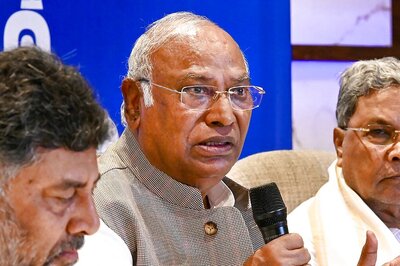
views
New Delhi: A serial killer, who would dump headless bodies of his victims near Tihar jail during 2006-07 and dare the cops to nab him, was today convicted by a Delhi court for the offences of murder and destruction of evidence. 44-year-old Chandrakant Jha, a native of Madhepura in Bihar, faces death penalty after Additional Sessions Judge (ASJ) Kamini Lau held him guilty of killing three persons in separate cases, relying on circumstantial and forensic evidence.
The court would hear on February 2 the arguments on quantum of sentence against Jha, who was earlier acquitted in two separate murder cases following his arrest in 1998 and 2007. Jha faced trial for killing Amit, Upender and Dilip and dumping their headless bodies near Tihar Jail, the prosecutor said adding that he had even challenged the police by writing several letters to catch him.
While Amit was killed in 2006, Upender and Dilip were murdered by the convict in 2007. The court, in its judgement, relied on various forensic evidence, including the views of the handwriting experts establishing the fact that the letters recovered near the bodies were written by Jha. The Delhi police had filed three separate charge sheets against Jha in the murder cases of Amit, Dilip and Upendra.
The police had said Jha had invited his victims to stay with him and took good care of them. After some time, he would get annoyed with them easily and took offence to their activities, it had said. According to the police, Jha used to tie the hands and feet of the victims before strangulating them.
It had said Jha had murdered his associates - Amit, Dilip and Upendra - after taking offence to their "drinking, meat eating and womanising" activities. He was earlier arrested in 1998 in connection with a murder case but was acquitted for want of evidence. In December 2007, a Delhi court had acquitted him after the police had failed to file charge sheet against him in an another murder case.
According to the police, Jha was involved in atleast six murder cases. Earlier, the court had deferred the verdict in the case after Jha had demanded that he be supplied a copy of the judgement in Hindi. The court had initially written a letter to the district judge seeking a person to translate the judgement but it found that the district courts have no translators.
It had then directed the administrative officer of the court to ensure that either a translator is hired from the Delhi University or a request is made to the High Court to provide translators for assistance through the Registrar General.

















Comments
0 comment